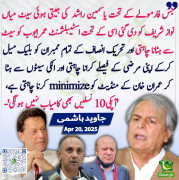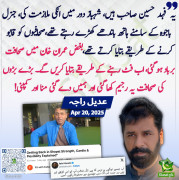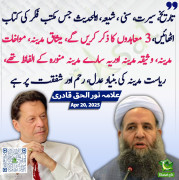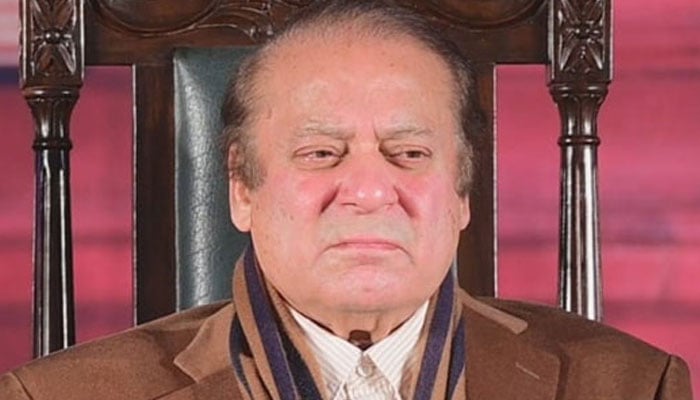Meme
Minister (2k+ posts)
Saudi Arabia, Iran Restore Relations in Deal Brokered by China
Accord marks diplomatic victory for Beijing in a region where U.S. has long dominated geopoliticsChina, which mediated the agreement announced on Friday, has built closer economic ties with both Iran and Saudi Arabia in recent years.
By Stephen Kalin
RIYADH, Saudi Arabia—Iran and Saudi Arabia agreed to re-establish diplomatic relations Friday in a deal mediated by China, ending seven years of estrangement and jolting the geopolitics of the Middle East.
The deal signals a sharp increase in Beijing’s influence in a region where the U.S. has long been the dominant power broker, and could complicate efforts by the U.S. and Israel to strengthen a regional alliance to confront Tehran as it expands its nuclear program. It comes as the U.S. has been trying to broker a peace deal between Saudi Arabia and Israel, an effort now clouded with uncertainty.
China in recent years has built closer economic ties with Iran and Saudi Arabia, both of which are important suppliers of oil to the world’s second-largest economy. But this bridge-building effort is the first time Beijing has intervened so directly in the Mideast’s political rivalries.
It comes at a time when relations between the U.S. and Saudi Arabia, long aligned with Washington, have grown strained over America’s diminishing security guarantees and Riyadh’s decision to cut oil production to keep crude prices high during Russia’s war in Ukraine.
The agreement between Iran and Saudi Arabia was hammered out behind closed doors in Beijing between top officials of the two countries, they said in a joint statement. Chinese leader Xi Jinping raised the idea of the talks most recently during a state visit to Riyadh in December, according to people familiar with the matter.
As part of the deal, Iran pledged to halt attacks against Saudi Arabia, including from Houthi rebels it backs in the Yemen civil war, according to Saudi, Iranian and U.S. officials. Iran and Saudi Arabia will reopen their embassies and missions on each other’s soil within two months and agreed that their foreign ministers will hold a summit soon to hammer out other details.
For Tehran, the accord eases the international isolation it has faced since antigovernment protests last fall and the collapse of talks aimed at restoring a 2015 international nuclear deal dashed its hopes of relief from economic sanctions. For Riyadh, it gives the kingdom more leverage as it seeks new U.S. security guarantees from the Biden administration.
“For Iran it’s about escaping diplomatic isolation. For China, it’s about deepening their engagement in the region and showing it’s not just an energy consumer. And for Saudis it’s about the Americans,” said Ray Takeyh, an Iran expert at the Council on Foreign Relations and former State Department official and former U.S. diplomat.
Saudi Crown Prince Mohammed bin Salman welcomed Chinese President Xi Jinping in the capital, Riyadh, last year.PHOTO: BANDAR AL-JALOUD/SAUDI ROYAL PALACE/AGENCE FRANCE-PRESSE/GETTY IMAGES
But re-establishing diplomatic relations isn’t likely to immediately lessen the longstanding security and sectarian tensions that have divided Riyadh and Tehran for decades and fueled their competition for regional dominance, analysts said.
Ties between the two countries were cut in 2016 after the Saudi Embassy in Tehran was overrun amid protests over the execution of a prominent Shiite cleric by the Saudi government.
Since then, the Iran-Saudi rift has represented the often violent schism between Shiite and Sunni Muslims that has dominated the Middle East for decades.
The Saudis and Iranians have backed opposite sides in conflicts ranging from Syria to Yemen for nearly a decade. In 2019, they were on the brink of war when Iran was blamed for missile and drone attacks on a Saudi oil field.
The current rapprochement follows signs that the proxy wars waged by Riyadh and Tehran were cooling. A United Nations-supported truce between Saudi- and Iran-backed sides in the Yemen war has held for nearly a year. The civil war in Syria has largely been won by President Bashar al-Assad’s government, with help from Iran and Russia.
Another Persian Gulf rival of Iran, the United Arab Emirates, reopened its embassy in Iran last year and has been pursuing trade and open lines of communication with Tehran.
The deal left unaddressed Iran’s nuclear program, which has been a source of friction between Tehran and much of the world, including China, for two decades. U.S. sanctions on Iran have left its economy in ruins, with a currency crisis in recent weeks roiling the country.
The Saudi government had kept U.S. officials apprised of their discussions to re-establish diplomatic relations with Iran, which dates back to talks in recent years in Baghdad and Oman, and supported the efforts in the hope that it would resolve some of the growing tensions in the Gulf, officials said. The U.S. wasn’t directly involved in these talks, officials said.
Ultimately, U.S. officials said the aim was to prevent any further attacks against Saudi Arabia, including those by Iranian-backed Houthi militants in Yemen. The officials believe that Iran had an incentive to join the talks because it wants to ease the growing political and economic pressure at home, and hopes that any diplomatic breakthroughs with its immediate neighbors might help.
U.S. officials said the next two months, until the official reopening of the embassies, would be critical in gauging how serious Tehran is in honoring the agreement.
Iranian President Ebrahim Raisi met with Chinese President Xi Jinping in Beijing last month.PHOTO: YAN YAN/XINHUA/ASSOCIATED PRESS
“This is not a regime that typically does honor its word, so we hope that they do,” White House National Security Council Strategic Coordinator John Kirby told reporters Friday. “We’d like to see this war in Yemen end, and that this arrangement that they have, might help lead us to that outcome.”
Mr. Kirby added: “This is not about China. We support any effort to de-escalate tensions in the region. We think that’s in our interests, and it’s something that we worked on through our own effective combination of deterrence and diplomacy.”
China’s role in the talks marks a watershed moment for Beijing’s ambitions in the region, a part of the world where the U.S. has waged war and spent hundreds of billions of dollars in providing security for allies. Along with Russia’s intervention in the Syrian civil war, China’s diplomacy is another sign of the U.S.’s waning influence.
China has stepped up its relations with Saudi Arabia and Iran in recent years as it became a major buyer of Middle East oil, but its ambitions had long appeared commercial, with little interest in involving itself in the region’s messy disputes.
Beijing has provided a lifeline to sanctions-hit Iran, becoming its main remaining crude buyer since the U.S. pulled out of a nuclear deal in 2018. But it has also sought closer ties with Saudi Arabia, Iran’s regional rival, for which it is the biggest trade partner and a top oil buyer. Riyadh has also started importing sensitive missile technology from the Chinese military.
Tehran had been increasingly worried Beijing’s growing ties with Saudi Arabia could leave it further isolated. Mr. Xi’s visit to Saudi Arabia in December triggered a backlash in Iran after Beijing joined an Arab statement calling on Tehran to cooperate with the International Atomic Energy Agency over its nuclear program.
The Gulf-China summit in Riyadh in December was key in getting Beijing more interested in de-escalating tensions between Riyadh and Tehran, said Ayham Kamel, head of Middle East and North Africa at political-risk advisory firm Eurasia Group, calling it a “quick win that showcases a new framework” of cooperation between China and the Middle East.
Saudi Arabia’s Embassy in Tehran was stormed by Iranian protesters in 2016.PHOTO: MEHDI GHASEMI/TIMA/ISNA/REUTERS
“Prince Mohammad bin Salman’s view that China can accommodate some of Riyadh’s security interests has been partially vindicated,” said Mr. Kamel.
China’s ability to broker a deal between two Middle East heavyweights “opens the first chapter of Beijing emerging as a key diplomatic power in the region,” he added.
Aaron David Miller, a veteran U.S. negotiator in the Middle East, said the deal reflects smaller powers readjusting to Washington’s de-prioritization of the region.
“The Saudis see a multipolar future with China and Russia as important partners—fellow autocrats who don’t ask questions about human rights,” said Mr. Miller, now a senior fellow at the Carnegie Endowment for International Peace.
“But it’s also a real slap in the face to Biden. At a time when U.S.-China relations are getting colder, MBS is getting cozier with Beijing,” he said, using Prince Mohammed’s initials.
The growing rapprochement between Shia-led Iran and the region’s leading Sunni states has unfolded despite U.S. efforts to keep Tehran economically and diplomatically isolated.
Under the Trump administration, the U.S. exited the 2015 nuclear deal reached by former President Barack Obama, restored sanctions and turned up efforts to choke off Iran’s oil exports and strangle its economy.
Saudi officials told U.S. officials shortly after the Biden administration took office in 2021 that they planned to continue to explore improving ties with Tehran, and the U.S. raised no objection though saw little prospect of a rapprochement, U.S. officials have said. The White House kept most sanctions in place and embarked on its own effort to restore the nuclear deal. But after Iran’s harsh crackdown on antigovernment protesters last fall the talks were suspended.
“For Tehran, rapprochement with the kingdom formally breaks the anti-Iran maximum pressure coalition, offering it less isolation with the potential for economic engagement. For Riyadh, it showcases a shift towards directly managing its tensions bilaterally rather than outsourcing to external actors,” said Sanam Vakil, deputy director of the Middle East and North Africa program at Chatham House, a London-based think tank.
The aftermath of airstrikes on a funeral hall in Yemen’s capital, San’a, in 2016.PHOTO: MOHAMMED HUWAIS/AGENCE FRANCE-PRESSE/GETTY IMAGES
Iran and Saudi Arabia are restoring relations at a time when the U.S. is trying to broker a peace deal between the Saudis and Israel, which would add to the growing ties between Israel and the Arab world. Iran is a rival of Israel, opposing the normalization deals and waging a covert war against the country.
Arab countries have embraced ties with Israel in part for intelligence sharing on Iran, and there have long been hopes in Washington for a so-called Arab NATO that would counter Iran. In Israel, the announcement of restored Saudi-Iran ties was met with dismay.
It couldn’t be immediately determined Friday how renewed Saudi-Iran ties would affect attempts to also build bridges to Israel. Arab countries have embraced ties with Israel in part for intelligence sharing on Iran, and there have long been hopes in Washington for a so-called Arab NATO that would counter Iran.
In Israel, the announcement of restored Saudi-Iran ties was met with dismay.
“The Saudi-Iran deal is a total failure of the Israeli government’s foreign policy,” said Yair Lapid, the opposition leader. “It’s the collapse of a regional defense wall we started building against Iran.”
Saudi Arabia, Iran Restore Relations in Deal Brokered by China
Iran and Saudi Arabia agreed to re-establish diplomatic relations in a deal brokered by China, ending seven years of estrangement and jolting the geopolitics of the Middle East.
- Featured Thumbs
- https://images.wsj.net/im-740462?width=860&height=573
Last edited by a moderator:


































